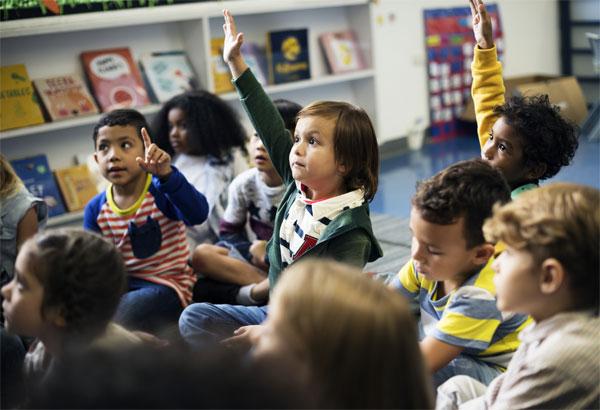Weathering the After Effects of the Lockdown - Preschoolers

Young children were among the people most impacted. Remote learning and being separated from peers during important developmental phases by the pandemic lockdowns impacted the children's physical and emotional development.
Research has shown that children in the first six years of life are especially vulnerable to these stressors because they are developing very rapidly. Parents noticed their young ones struggling with significant changes to their routines (e.g., schools and childcare closures, social distancing, home confinement), which interfered with their sense of structure, predictability, and security.
Parents noticed their young children falling back in already acquired skills, sleep disturbances, feeling anxious or irritable. Areas such as social skills and transitioning back to playschool/preschool and school were negatively affected.
This pandemic showed us how much of an effect it had on young children, because even if they don't fully understand what is happening, they still are able to perceive a threat. Other than the possibility of becoming ill, factors kids would have found stressful included an increase in tension, separation, parents’ unemployment, exposure to negative reports in the media, as well as struggling with parents working from home and the challenges of learning at home.
Children are keen observers of people and environments, and they notice and react to stress in their parents and other caregivers, peers, and community members. They may have asked direct questions about what was happening, why couldn’t they go out to play or what will happen in the future and may have reacted differently to strong feelings (e.g., dread, worry, grief, anger) about the pandemic and related conditions.
The overall emotional toll of these two hard years was evident. Pre-schools and schools had kids who had lost loved ones. Parents and teachers were dealing with angrier children.
When children returned to classrooms after a year of virtual learning, parents and teachers had hoped the return to in-person teaching would ease the behavioural and emotional issues they saw in their child, but they saw the opposite.
The transition from home to school was a lot to handle for younger children. They did not know how to act around other children. It became harder to hold their attention. They found it hard to sit through a lesson. Kids returned to educational institutions with elevated levels of anxiety and stress. Young children got used to homes where there was too much screen time and not enough one-on-one attention or stimulating activities that were/are critical for healthy development
Preschools and schools dealt wonderfully with this transition from home to school by spending less time focusing on academics in the first few weeks of the school year, and more time checking in on students’ mental health and school readiness.
What else can be done for young children, one may ask? Much, much more is the answer!
- Every morning, for about 5 minutes, check in with your children and young students and have them share how they're feeling for that particular day. It's not that parents and teachers – who've already stepped up and done more than ever before during, and after the pandemic – should now become mental health professionals, but be able to understand what mental health concerns may be in present in their homes and classroom and to be able to recognize them, so that those children can get help.
- Helping children, especially younger ones learn to label emotions and talk about emotions and listening to them with an empathic ear is important.
- For very young ones, "pretend play" can be used to prepare for certain changes. For example, parents and teachers can act out the greetings and farewells of pickups and drop-offs so these events don't become unpleasant for your child at day-care or preschool.
- Check with young children on what they feel most comfortable with, especially when it comes to socialization and follow their lead. Offer gentle encouragement, but don't force it. Some kids may need a bit of encouragement to get outside their comfort zone, and as their parent, you likely know how much of a nudge is required.
- Be sure to acknowledge good behaviours with encouraging language. For example, if you're at a supermarket or a mall and notice them behaving well, you could say, "Great job waiting in line!"
- Every child is different, and as with adults, the right coping strategies will differ by personality. Some kids may need more time before they fully settle into pre-school or school, while others may need to balance outside activities with some quiet time alone. Some kids may even be doing well adjusting to these transitions from home to school.
All these situations are perfectly normal after a completely abnormal year. Encourage your little ones to take a step forward at their own pace. If you still feel your little one needs that extra help, you can always reach out to a mental health professional.
Written by:
Ms. Sneha Loganathan.
Clinical Psychologist at Meadows of Hope, Bangalore.
Meadows of Hope is a Centre for Emotional Wellness and Psychotherapy Clinic. MOH offers individuals an opportunity to a life of wholeness with an integrated approach for restoration of emotional wellness through counselling, coaching, and training to serve individuals, families, and the community.
Reach them at :
https://www.meadowsofhope.com
info@meadowsofhope.com
